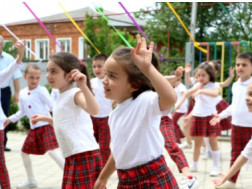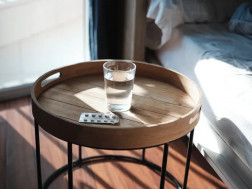"I went through hell," says Yocheved Lifschitz, an 85-year-old grandmother and peace activist released by Hamas on Monday after two weeks in captivity.
Ms Lifschitz and her husband were kidnapped by Hamas gunmen on motorbikes and taken into a "spider's web" of tunnels underneath Gaza, she said.
She described being hit by sticks on the journey, but said most of the hostages were being "treated well".
She was freed alongside another woman, Nurit Cooper, 79, on Monday evening.
Extraordinary images show the grandmother shaking the hand of a Hamas gunman, just seconds before she was handed over to the International Red Cross at the Rafah crossing between Gaza and neighbouring Egypt.
"Shalom," she appears to say to the gunman - the Hebrew word for peace.
Ms Lifschitz was kidnapped, alongside her husband Oded, from Nir Oz Kibbutz in southern Israel on 7 October. He has not been released.
It was early in the morning when Hamas attacked their kibbutz, massacring the small community. One in four residents are believed to have been killed or kidnapped, including many children.
Speaking at a news conference from Ichilov hospital in Tel Aviv just a few hours after her release, Ms Lifschitz explained what happened after she was kidnapped.
She said she was hit with sticks during the journey into Gaza, and suffered bruises and breathing difficulties.
Her daughter, Sharone Lifschitz, who helped translate her mother's ordeal to reporters, said the 85-year-old was forced to walk for a few kilometres on wet ground.
Sharone said her mother was taken into "a huge network of tunnels underneath Gaza that looked like a spider's web".
Ms Lifschitz said she was among 25 hostages taken into the tunnels and after several hours, five people from her kibbutz, including herself, were taken into a separate room. There, they each had a guard and access to a paramedic and doctor.
She described clean conditions inside, with mattresses on the floor for them to sleep on. Another captive who was badly injured in a motorbike accident on the way into Gaza was treated for his injuries by a doctor.
"They made sure we wouldn't get sick, and we had a doctor with us every two or three days."
She also said they had access to medicines they needed and there were women there who knew about "feminine hygiene".
They ate the same food - pitta bread with cheese and cucumber - as the Hamas guards, her daughter Sharone added.
BBC.news












